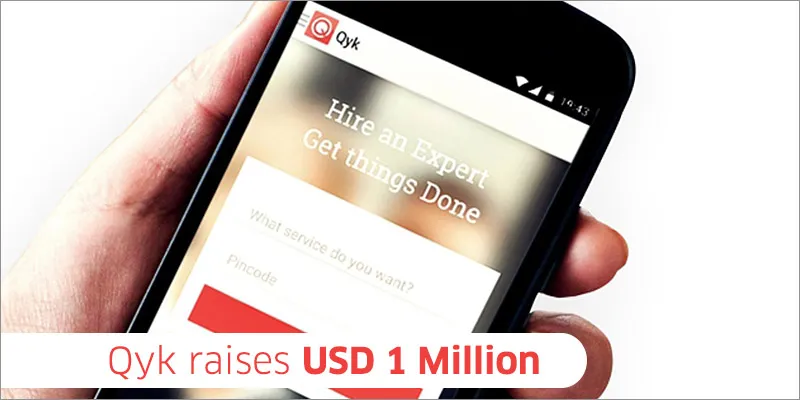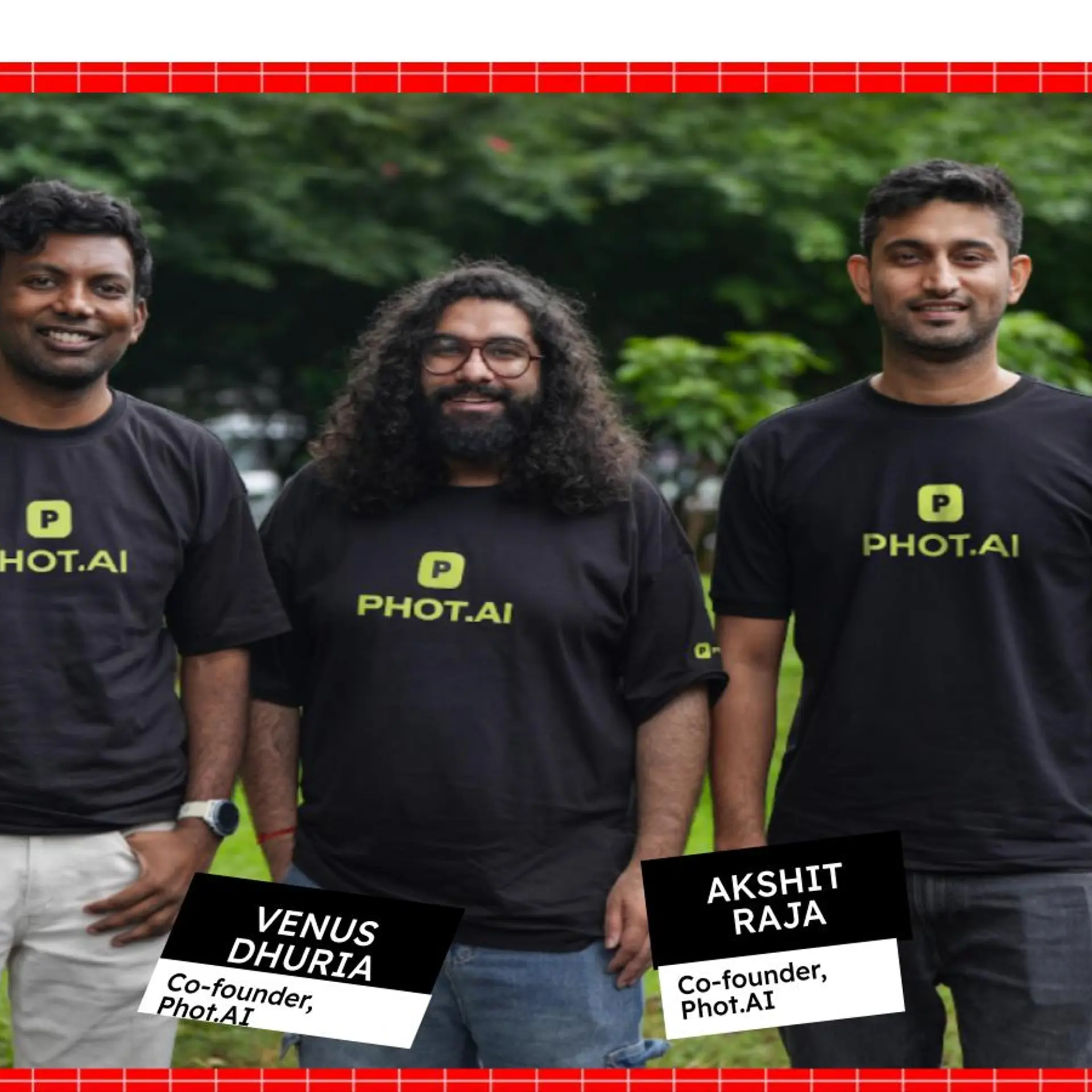With 200% MoM growth, hyperlocal services marketplace Qyk has raised Pre-Series A funding round
Qyk, a Bengaluru-based hyperlocal mobile marketplace has raised a round of pre-Series A investment by Growx Ventures. This is the second round of investment this hyperlocal startup has raised. Earlier in March, this mobile marketplace had raised a seed round of funding by Tracxn Labs, Powai Lake Ventures, and Sahil Barua, Co-founder of Delhivery.
The investment amounting to USD one million will be used for market expansions and further enhancing their product lines."We're seeing a growth of close to 200 per cent month-on-month," adds Deepak Singhal, Co-founder and CEO of Qyk.
The services range from over 100 categories from photographers, event organisers, interior designers to personal yoga tutors. According to Co-founder and CEO Deepak Singhal, all it takes is a few minutes of effort for the customer and he gets connected to the best professionals.
Today, Qyk has grown to a 70-member team and intends to build a team size of 200 by the end of the year. Currently, the platform showcases over 100 categories with over 10000 different professionals.

Market penetration and expansion
With this round of funding, Qyk intends to go deeper into the existing markets and cities - Bengaluru, Mumbai, Pune, Delhi, Chennai, Hyderabad, and Kolkata. "Before we expand or open operations in other cities, we would like to completely penetrate deeper into these seven cities with more vendors and clients," adds Deepak. However, the team aims to touch 15 cities by the end of this year.
According to Deepak, Qyk’s secret sauce is their technology. He says that they built highly efficient algorithms to match service providers with customers saving everyone’s time and effort. “We see this as a tech-led solution. We have a brilliant team and the right skill sets to make this happen,” adds Deepak.
When YourStory spoke to Qyk in May this year, Deepak stated that the team has grown from zero to over 100 requests per day in less than three months. The team had aimed reach 5000 requests per day across five cities within the next 12 months. Currently, Deepak claims to have over 80,000 app downloads.
Product development
The team aims to improve the matching algorithms on the app. Deepak says that this will ensure that the results the consumer receive will be much improved and better. The app has also launched a chat facility that enables the consumer to directly converse with the vendor. "We're also building a rating system, which will help consumers choose vendors and also rate them on quality," adds Deepak.
With Qyk, customers can find the best, verified service providers in the quickest time possible. Deepak says that the app uses algorithms to intelligently match demand and supply based on parameters like specific requirements, location, availability, and budget.
Ashish Taneja, MD, GrowxVentures, says that the Qyk model is similar to US's Thumbtack . He adds that the growth and success chart of both seem very similar. Abhishek Goyal, Co-founder Tracxn Labs, adds that the Qyk team has displayed a positive growth and the scalability of the product and their model is positive.
The hyperlocal mania
In a research piece YourStory covered, over 27 deals have been announced in the hyperlocal segment. The industry has gone through a rapid evolution too in a short span. Firms like LocalOye, Grofers, SpoonJoy, Zopper, and Swiggy are attempting to solve a wide variety of daily problems faced by consumers, ranging from getting groceries to finding reliable handymen.
A combination of contributing factors, say entrepreneurs in this industry, has led to this spurt in startup and investor activity. Changing customer behaviour is the primary reason. “Behaviour is tending towards on-demand world over,” says Neeraj Jain, 37, Co-founder of Noida-based Zopper.
About 40 million consumers purchased something online in the entire year, according to an Assocham-PwC report, and this number is expected to go up to 65 million this year. Indian consumers spent about $22 billion on e-commerce transactions, according to a Deutsche Bank report, and this number is estimated to reach $86 billion in the next three years.
The year has definitely seen an expansion and investor interest in the hyperlocal segment. However, whether the traction and growth will continue on this trajectory is yet to be seen. The space is yet to see the consolidations that other spaces have seen earlier.







